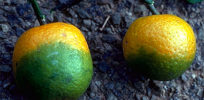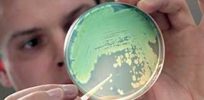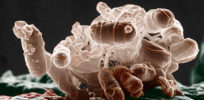National Geographic
When you get jetlagged, so does your microbiome
Your genome is the same right now as it was yesterday, last week, last year, or the day you were ...
Researchers explore mysterious origins of microbes
We love origin stories. When we see successful groups of animals and plants, we wonder where they came from, and ...

Woman’s quest to uncover family history using DNA tests upturns her life
In 2008 the story’s protagonist, 56-year-old Cheryl Whittle from rural Virginia, heard about DNA testing on Oprah. Just for kicks she ...
Is evolution actually halted in ‘living fossils’?
One late spring weekend a few years back, my wife and I drove out to Delaware to see an amazingly ...
Central Park home to more wildlife than meets the eye
In 2003, an army of 350 scientists and volunteers swept out across Central Park. Their mission, called a BioBlitz, was ...
Our gut microbes get fed, even when we do not
For bacteria, the mammalian gut is like Shangri-La. It’s warm and consistently so, sheltered from the environment, and regularly flooded ...
How very similar genes give rise to diversity of life
There’s a unity to life. Sometimes it’s plain to see, but very often it lurks underneath a distraction of differences ...

Can biotechnology rescue diseased Florida orange crop?
For the past decade, Florida's oranges have been literally starving. Since it first appeared in 2005, citrus greening, also known ...

Your microbiome isn’t just in you: It’s all around you
As I type these words at my desk, I’m seeding my house with bacteria. I touch the desk, the light ...
Using consumer genetics to map the world’s genealogy
While millions of people spent last weekend dumping buckets of ice water on their heads and documenting it on Facebook ...
Genetic explanation for short stature in humans
It's not another tall tale: Evolutionary biologists have developed a new understanding of the genetic basis of short stature in ...
Fossils tell of mammals’ rough road to survival
When the asteroid slammed into prehistoric Mexico and drew the curtain on the Cretaceous, dinosaurs did not fare very well. All ...
Mapping evolutionary history with genes for smell
Animals have been smelling for hundreds of millions of years, but the evolution of that sense is difficult to trace ...

What can our microbiomes tell us about ourselves?
Some of my friends are sporting wristbands these days that keep track of their bodies. Little computers nestled in these ...
Butterflies evolve at amazingly fast rate to adapt to environment
A team of researchers who bred a species of brown African butterfly in the lab were shocked to discover that ...
Epigenetics may explain Neanderthals’ extinction
Late last year, scientists unveiled the complete genome of a female Neanderthal whose 130,000-year-old toe bone had been found in a cave in Siberia ...
Turing description of interacting molecules explains how fingers and toes form
Your arms and toes began as tiny buds that sprouted from your sides when you were just a four-week-old embryo ...
DNA portrait of Puerto Rican ancestry
National Geographic’s Genographic Project researches locations where different groups historically intermixed to create a modern day melting pot. Collaborating with 326 ...
Newly discovered virus modulates bacteria in gut, aids immune system
The most common viruses in your body don’t make you ill. Instead, they infect the legions of microbes that live in ...
Elephants can attribute superior smell to genes
Compared with 13 other mammal species studied, African elephants have the most genes related to smell: 2,000. That’s the most ever ...
Fish with a placenta? How did evolution come up with that?
With their impressive fins and stunning colours, the poeciliids—a group of small fish that includes guppies, mollies and swordtails—are understandably ...

Scientists look for ‘gerontogens’ substances that work with our genes to induce aging
Why do our bodies age at different rates? Why can some people run marathons at the age of 70 while ...

Using genetic risk and math, scientists predict which teen drinkers will develop problem
Scientists have pinpointed lots of factors that increase the risk of alcohol misuse — a bit. Adolescents who are anxious ...
Mutation rates may explain why plants can live much longer than animals
Scientists can’t offer a simple, straightforward answer to why plants can get so much older than animals. But they have ...
Corals and humans evolved complex mechanisms for necessary cell death
For us to live, parts of us must die. Every day, billions of our cells shrink, break up into small ...
Microbial passengers of our gut and skin change as we grow
When we are born, our mothers seed us with our first bacteria. As we grow up, these microbes—the microbiota—behave like ...
Environmental exposures cause aging. We should know more about them.
Why do our bodies age at different rates? Why can some people run marathons at the age of 70, while ...

George Church, founder of ‘Facebook of DNA,’ says genetics can solve many world problems
In the future, George Church believes, almost everything will be better because of genetics. If you have a medical problem, ...

